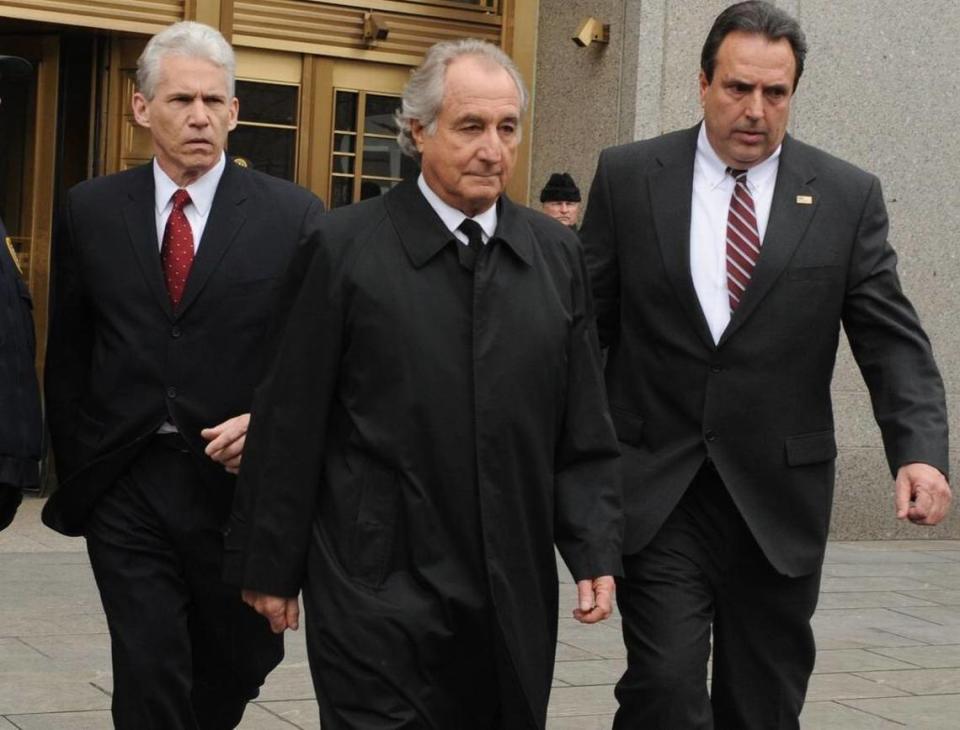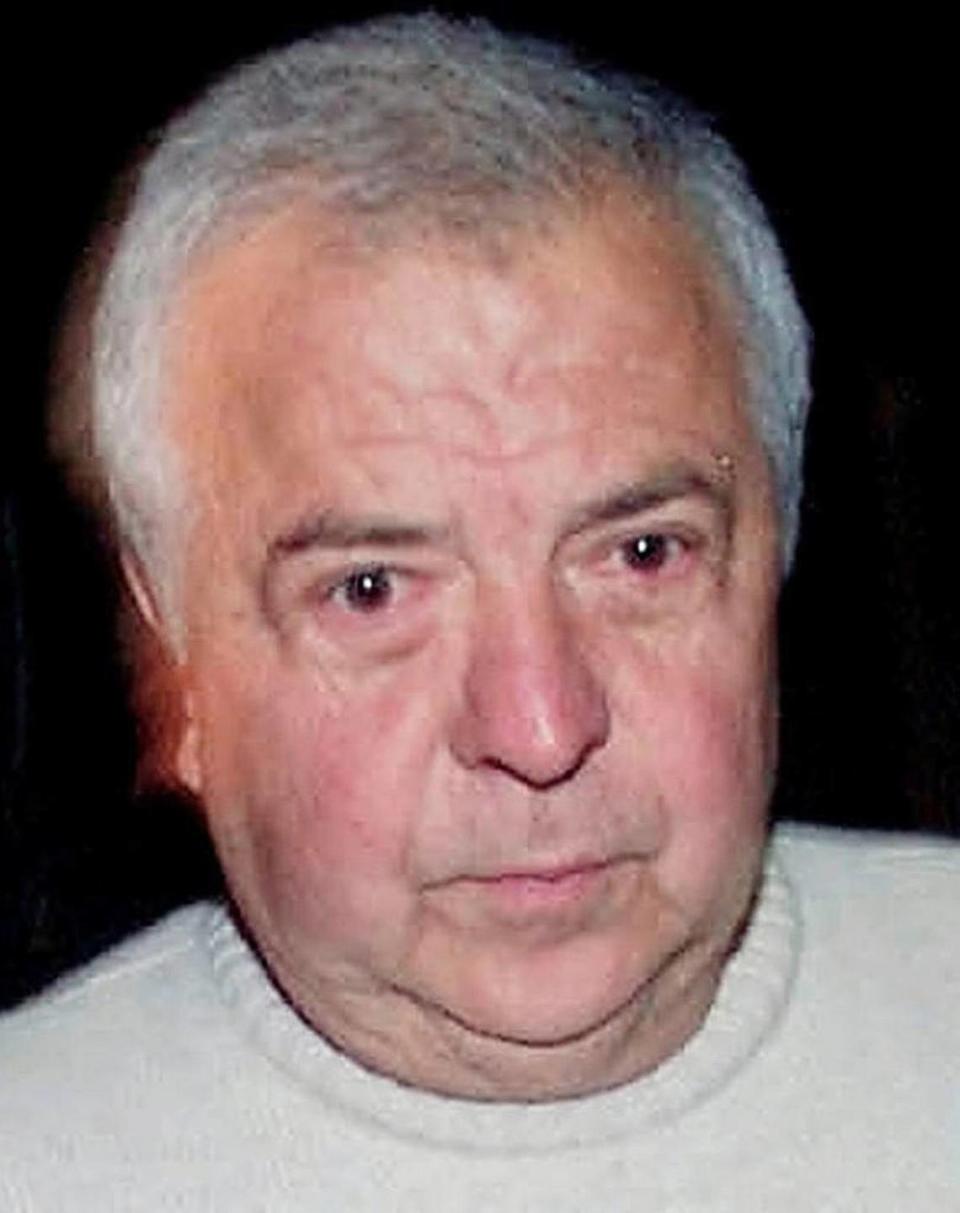Fraudsters, hackers and killers: infamous inmates at NC prison in coronavirus outbreak
Federal prisons across the country are dealing with coronavirus outbreaks, but none have been as bad as Butner in North Carolina.
FCI Butner, just north of Durham, is comprised of medium and low security camps as well as a federal medical center, according to the Federal Bureau of Prisons.
It’s also home to some of America’s most notorious financial fraudsters, computer hackers, drug lords and murderers.
“It may not be ‘club Fed’ but it is the closest thing that exists in the federal prison system to a country club prison,” Business Insider reported in a 2009 article that referred to Butner as the “crown jewel of the federal prison system.”
Prison officials at Butner began purging cells this week with early release for inmates as the number of reported COVID-19 cases skyrocketed. The prison was reporting 62 cases by the end of the day Tuesday.
A 54-year-old inmate escaped last week and has not been found, The News & Observer reported. Some inmates speculate he “fled to avoid catching the disease.”
Butner remains the complex with the highest number of cases among the roughly 34 federal prisons and seven halfway houses reporting staff or inmates who tested positive as of Thursday.
Here’s a look at some of the well-known inmates housed there.
Bernie Madoff
Bernard L. Madoff is one of the most notorious Ponzi schemers of the 21st century.
Madoff, now 81, swindled “thousands of investors out of tens of billions of dollars over the course of at least 17 years, and possibly longer,” according to Investopedia.
He was sentenced in 2009 to 150 years in prison and ordered to pay $170 million in restitution.
Madoff sought compassionate release from Butner in February, McClatchy News reported. His attorneys said he has ‘”chronic kidney failure” and up to 18 months to live.
Federal prosecutors have opposed the request, court documents show.

Gilberto Rodriguez-Orejuela
Rodriguez-Orejuela, 81, is “one of the world’s most infamous drug lords,” according to the Miami Herald.
He’s seeking early release from Butner based on the threat of the coronavirus, the Herald reported. At the time of the request, the prison had not reported any positive cases.
“Due to the COVID-19 pandemic, we are concerned that when such a virus spreads to the facility where he is incarcerated, it will be a death sentence to Mr. Rodriguez-Orejuela,” his defense attorney, David O. Markus, wrote in a court filing, according to the Herald.
Rodriguez-Orejuela is serving a 30-year sentence after running a family cartel in Colombia “that revolutionized the cocaine-smuggling rackets in the 1980s and 1990s,” the newspaper reported.
He reportedly exported roughly 200 tons of cocaine worth $2 billion to the U.S. during that time.

Roman Valerevich Seleznev
A federal judge sentenced Seleznev to 14 years in prison in 2017 for his involvement “in a $50 million cyberfraud ring and for defrauding banks of $9 million through a hacking scheme,” prosecutors said.
The Russian-born hacker admitted to selling stolen credit card data for $20 a pop and helping to infiltrate the website of a credit and debit card processing company, according to a press release at the time of his sentencing.
He and a team of hackers ultimately stole 45.5 million debit card numbers from the company and withdrew $9.4 million from ATMs in under 12 hours.
Seleznev started out at a medium security facility in Atlanta but was later transferred to Butner, the Atlanta Journal-Constitution reported.
“This is considered to be a very good prison, with a good hospital,” his attorney Igor Litvak reportedly said. “He can walk there, there is a library there, and people may go in for sports.”
Samuel Israel III
Israel is a former hedge fund manager who was sentenced to 22 years in prison for running a $450 million fraud from 1996 to 2005, Reuters reported.
It was “one of the largest Ponzi schemes uncovered before Bernard Madoff’s,” according to Reuters.
After a guilty plea in 2005, Israel “faked his own suicide by leaving his GMC Envoy on the Bear Mountain Bridge north of New York City, with the words ‘suicide is painless’ scrawled in dust on the hood,” Reuters reported.
He later surrendered to federal prison officials at Butner and got an extra two years on his sentence.
Like Madoff, Israel has since sough compassionate release from Butner, citing his ailing health. But a federal judge denied the request, saying “it would make a mockery of the sentencing statute” if she let him go free, Reuters reported.
Al Parish
Parish was an economist at Charleston Southern University in South Carolina before he was caught running a Ponzi investment scheme, WCIV reported.
He was sentenced to 24 years behind bars in 2008 and ordered to forfeit $63 million, according to the station.
Before his downfall, Parish — who nicknamed himself “Economan” — was known for his “flashy clothes” and swanky pen collection worth $1.2 million, NBC News reported.
One of them, “a diamond-studded fountain pen,” was reportedly worth $170,000.
John Russell Whitt
Whitt, 58, was sentenced to life in prison earlier this year after he was charged with killing his 10-year-old son and wife in 1998, The News & Observer reported.
The child became known as “Boy Under the Billboard,” after a grass-cutting crew found his body that same year under a highway sign in North Carolina. But his remains weren’t identified until 2019.
The body of Whitt’s wife, Myong Hwa Cho, had been dumped off of I-85 in South Carolina in 1998.
Prosecutors said Whitt killed his family because he was having an affair, The News & Observer reported.
He was already serving a federal prison sentence for committing armed robbery in 1999, the remainder of which he is serving at Butner. Whitt will then be moved to the state prison system.
Jesse Jackson Jr. (former inmate)
The former Democratic congressman from Chicago was sentenced to 30 months in prison in 2013 for using campaign funds to buy personal items, the New York Times reported.
Jackson was released from a prison facility in Alabama in 2015, according to CNN, but he started his sentence at Butner.
Jackson showed up several days early to begin his sentence, but the staff at Butner turned him way, ABC7 reported.
He was admitted the next day “after some paperwork,” according to the station.

